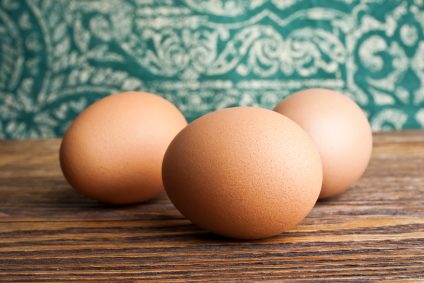The protein debate: How much do you really need and when?
When it comes to building muscle, staying energized and keeping hunger at bay, nothing beats protein’but figuring out just how much you need can be tricky

Source: Web exclusive: August 2011
Protein is a vital part of a healthy diet, helping with the growth and repair of tissues, including skin, bones, eyes and, most importantly, muscles. It also helps support a healthy immune system. But while it’s common in our culture to be concerned about sufficient protein intake, many of us (particularly those who eat lots of meat or slurp back protein shakes) may be consuming too much. Striking the right balance is key for a strong, healthy body.
How much protein should we eat?
Nutritionist and homeopath Michelle Meilleur, who runs Living Well Nutrition and Wellness Coaching in Belleville, Ont., recommends that her clients aim for a serving of lean protein every time they eat; options include Greek yogurt, cottage cheese, fish, chicken, lean meat, eggs, tofu and tempeh. “Protein will help you feel full and crave less sugar,” she explains. That’s because protein extends the release of carbohydrates over a longer period of time, providing more sustained energy and increasing satiety better than carbohydrates or fat. "Starting the day with a bowl of cereal, for example, can leave you searching for more carbohydrates sooner than later. It won’t fill you up and so you will be reaching for a cookie or a muffin, because that’s what the brain will crave. It won’t crave a bowl of yogurt," she explains.
This is why protein, which can help keep snacking at bay, is so important for people who are trying to lose weight. But scarfing back a huge steak at every meal isn’t the answer, either. As Angela Dufour, a sports dietitian at Nutrition in Action in Bedford, N.S., explains, when it comes to protein, North Americans tend to overconsume‘and that can be just as unhealthy.
Dufour says that when it comes to good health, adults should be looking at a diet made up of a balance of carbohydrates (45 to 65 percent), healthy fats (20 to 35 percent) and protein (10 to 35 percent). "If you look at a 2,000-calorie diet, that’s only a modest amount of protein," she says, explaining that a typical 70 kg (154 lb) man would require only 56 grams of protein a day, while a 58 kg (128 lb) woman would only need 46 grams.
"In fact, when we talk in terms of amount of protein specific to body weight in adults, the ideal is actually 0.8 grams of protein per kilogram of body weight," Dufour says. “But [what we’ve found] with the Canadian diet, at least with studies in athletes, is that we’re getting two to three grams of protein per kilogram of body weight, and that’s way too much.” (Children and adolescents, however, do need more protein and should consume almost 2 grams per kilogram of body weight).
Watch your protein portion sizes
As with so many things, when you’re seeking to strike the perfect balance with protein, portion size is key. "So it’s not a 10-ounce steak," says Meilleur. "It’s three to four ounces of meat." That’s half a chicken breast, or a steak the size of a deck of cards. "The protein has to be there, but in the right amounts." She says many women (especially those trying to shed extra pounds) are guilty not only of getting too much protein, but of not eating enough carbohydrates’the body’s fuel. "It needs to be in balance," she explains. "They are likely trying to build muscle, but if you don’t have the carbs in the form of vegetables, fruit or whole grains, then you end up burning the muscle and you aren’t reaching your goal of building it."
Protein doesn’t equal meat
Dufour also says protein doesn’t have to come from meat. "If you are consuming more meat, you are consuming more saturated fat," she explains. "That can put you at risk for cardiovascular disease." Instead, she recommends adding protein sources like tofu (21 grams per 3/4 cup), eggs (13 grams in two large ones) and soy milk (8.5 grams per cup). And while she says nuts, seeds and nut butters are another great source of protein, they can be high in fat and should be consumed in moderation. Low-fat milk, yogurt (3/4 cup of Greek yogurt has 18 grams of protein!) and cottage cheese are great options, too. Grains and legumes do provide some protein (particularly when they’re eaten together), but it’s not as readily absorbed by the body, Dufour says.
Timing is key
Finally, if you’re looking to build muscle, both Dufour and Meilleur stress the importance of consuming protein soon after a workout because it helps repair the muscle tissue that’s been stressed. "The timing of protein is important," says Dufour. "In terms of repairing and rebuilding, we like to see people having something within 20 minutes to half an hour after a workout’some research is even saying get it as soon as you can." She suggests drinking chocolate milk, tucking into a bit of yogurt, or snacking on trail mix. "Then you follow that with a meal (again, with some protein) within an hour or two."




